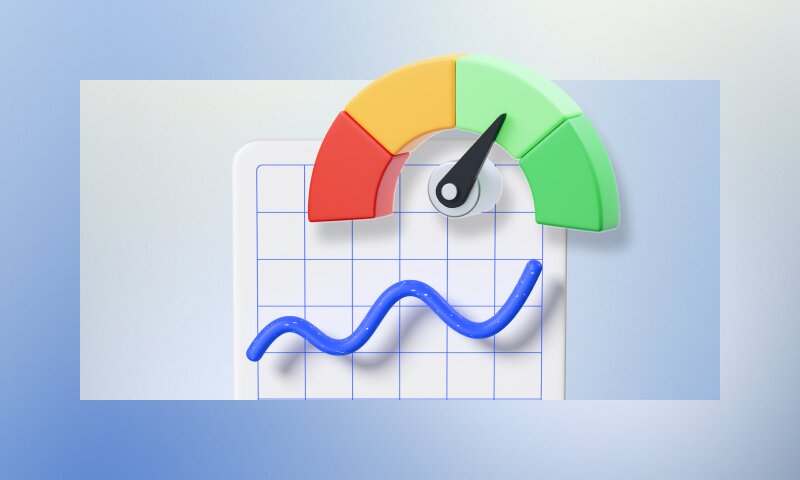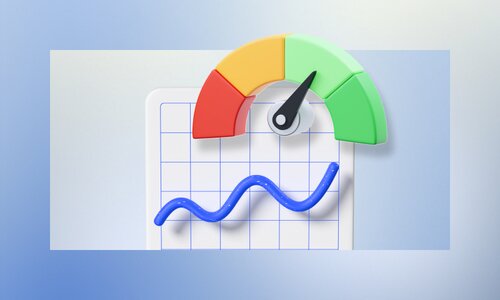Your credit report can significantly impact your financial well-being. It plays a crucial role whether you're applying for a credit card, a loan, or even renting an apartment.
Understanding how to read and interpret your credit report is essential for maintaining a healthy credit score and financial stability.
What Is a Credit Report?
Your credit report is a detailed document that serves as your financial track record. It compiles a wide range of information related to your financial activities. This includes your credit accounts, such as credit cards, loans, and mortgages, along with your payment history, any public records about your financial situation, and more. Credit bureaus, independent agencies specializing in collecting and managing consumer credit information, collect and maintain these data points.
One of the primary functions of a credit report is to offer a comprehensive snapshot of your financial behavior and provide a credit score. This score reflects the level of risk you pose to potential lenders and shows how responsible you've been with your financial commitments.
Your credit report is like your financial resume, and creditors, landlords, credit card issuers, and even some potential employers consult it to evaluate your financial reliability.
What Factors Contribute to Your Credit Score?
Your credit score is a three-digit number that reflects your creditworthiness and is based on the information found in your credit report. Several factors contribute to your credit score, but the most widely used credit scoring model, FICO, considers the following factors when calculating your credit score:
Payment History (35%)
The most significant factor in your credit score is your payment history. This includes whether you've paid your bills on time, had late payments, or experienced delinquencies. Consistently making on-time monthly payments positively impacts your credit score, while late or missed payments can have a detrimental effect. If you have past due payments and your credit score is suffering, paying them down could be one of the fastest ways to improve your score.
Credit Utilization (30%)
Credit utilization, or the amount of credit you currently use compared to your credit limit, is another critical factor. Ideally, you should use a lower percentage of your available credit. High credit utilization can negatively affect your score, while lower utilization can positively impact you.
Length of Credit History (15%)
The length of your credit history is also considered. Lenders like to see a longer credit history as it provides a more comprehensive view of your financial behavior. Maintaining older credit accounts in good standing can be beneficial.
Credit Mix (10%)
The diversity of your credit accounts is important. A mix of credit types and accounts, such as credit cards, installment loans, student loans, and mortgages, can positively influence your score, indicating your ability to manage different financial responsibilities.
New Credit Inquiries (10%)
A hard inquiry is placed on your credit report whenever you apply for credit. Multiple inquiries in a short period can signal financial stress and potentially lower your credit score. Be mindful of opening several new accounts at once. Soft inquiries, like checking your credit report, do not usually affect your score.
Why Is Your Credit Report Important?
Here's why it matters:
Lending decisions: When you apply for a credit card, a personal loan, an auto loan, or a mortgage, lenders use your credit report to assess your creditworthiness. This process helps them decide whether to approve your application and what terms to offer. A good credit report can lead to lower interest rates and better loan terms, potentially saving you money in the long run.
Renting or leasing: Landlords and property management companies often check your credit report as part of the tenant screening process.
Lower insurance premiums: Some insurance companies consider your credit report when determining auto or homeowner's insurance premiums.
Job opportunities: In some industries and positions, employers may review your credit report as part of the hiring process. While your credit report is not typically a factor for all jobs, it can be relevant in roles where financial responsibility is a significant consideration.
How to Obtain Your Credit Report
You are entitled to one free copy of your credit report from each major credit bureau (Equifax, Experian, and TransUnion) every 12 months. You can visit AnnualCreditReport.com to access these reports.
Additionally, many credit cards and other banking establishments offer credit monitoring services that provide access to your credit report, credit score tracking, and alerts for any changes. You can also contact the credit bureaus directly and request your credit report for a fee.
How to Read Your Credit Report
Once you have your credit report, it's time to decipher the information it contains. Here's what you should look for:
1. Personal information: Verify that your personal information section is correct. This includes your name, date of birth, current and previous addresses, Social Security number, and employment history. It’s also always good to ensure that your contact information is accurate, including your current address and phone number.
2. Account information: Review the details of your credit accounts, such as credit cards, loans, and mortgages. Check for any inaccuracies or discrepancies, and report any open accounts that should be closed, and vice versa. Also, check to ensure the loan amounts are correct, as this can impact your credit mix and utilization.
3. Payment history: Ensure that all payments are reported accurately, and if a payment status is wrong, gather the necessary information and report it immediately.
4. Public records: Check for bankruptcies, tax liens, or other public records that may negatively impact your credit. These records can significantly affect your creditworthiness and should be reviewed for accuracy.
5. Credit inquiries: Review the list of companies that have accessed your credit report. Multiple inquiries within a short period, known as "hard inquiries," may raise concerns for potential lenders. Ensure that you recognize and understand the purpose of these inquiries.
6. Collections: If you have any collection accounts, ensure the information is correct and up-to-date. Accounts in collections can significantly damage your credit score and financial standing.
Disputing Errors
Discovering errors or inaccuracies in your credit report is not uncommon. However, these errors can adversely affect your credit score. Fortunately, you can dispute any inaccuracies and have them corrected. Here's how to go about it:
Identify the Errors
Carefully review your credit report to pinpoint any inaccuracies or harmful information, such as:
- Incorrect account information (e.g., accounts you don't recognize or closed accounts that are reported as open).
- Inaccurate payment history (e.g., late payments that you made on time).
- Unrecognized credit inquiries or applications.
- Any accounts mistakenly reported as in collections.
- Personal information errors (e.g., incorrect name, address, or Social Security number).
Gather Supporting Documents
Collect relevant documentation, such as account statements, payment receipts, or correspondence with creditors, to substantiate your dispute.
Contact the Credit Bureaus
Write a formal dispute letter to the credit bureaus (Equifax, Experian, and TransUnion) that generated your credit report to dispute errors. In your letter:
- Clearly state the mistakes you are disputing and provide specific details.
- Include copies of the supporting documents you've gathered.
- Request that the errors be corrected or removed from your report.
You can also file a dispute online through each credit bureau.
Keep Records
Make copies of all correspondence and documentation related to your dispute. This will be useful if you need to follow up or escalate your dispute.
Wait for a Response
Credit bureaus are required by law to investigate your dispute within 30 days. They will contact the data furnisher (the company that provided the information) and review your case.
Review the Results
Once the credit bureau completes its investigation, you will receive a written response and an updated credit report. Examine the report to ensure the errors have been corrected.
Follow Up
If the errors persist or the credit bureau does not satisfactorily resolve the issue, you may need to escalate your dispute. This may involve contacting the Consumer Financial Protection Bureau (CFPB) or seeking legal advice.
Addressing Identity Theft
During the pandemic, the Federal Trade Commission saw a 3,000% increase in identity theft complaints. If you suspect that the errors in your credit report result from identity theft, it's critical to act swiftly. In cases of identity theft, you should:
- Contact the credit bureaus immediately to place a fraud alert on your credit report. This alert notifies potential creditors to take extra precautions when processing applications in your name.
- To officially report identity theft, file a report with your local law enforcement agency and the Federal Trade Commission (FTC).
- Review your credit report thoroughly to identify unauthorized accounts and transactions. Dispute these inaccuracies with the credit bureaus.
- Consider freezing your credit to prevent new accounts from being opened in your name. This provides an added layer of security.
- Keep detailed records of all your communications and actions to resolve the identity theft issue.
Identity theft can have severe consequences on your credit and financial well-being and negatively affect your credit report.
Understanding your credit report is essential to managing your financial health and ensuring that you're well-positioned for a secure financial future.










